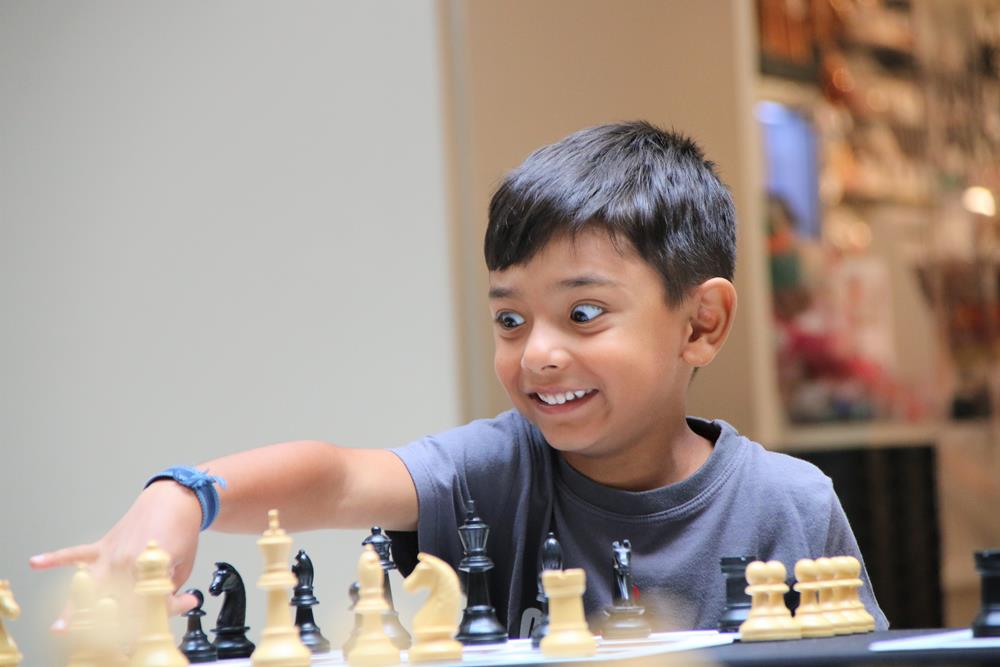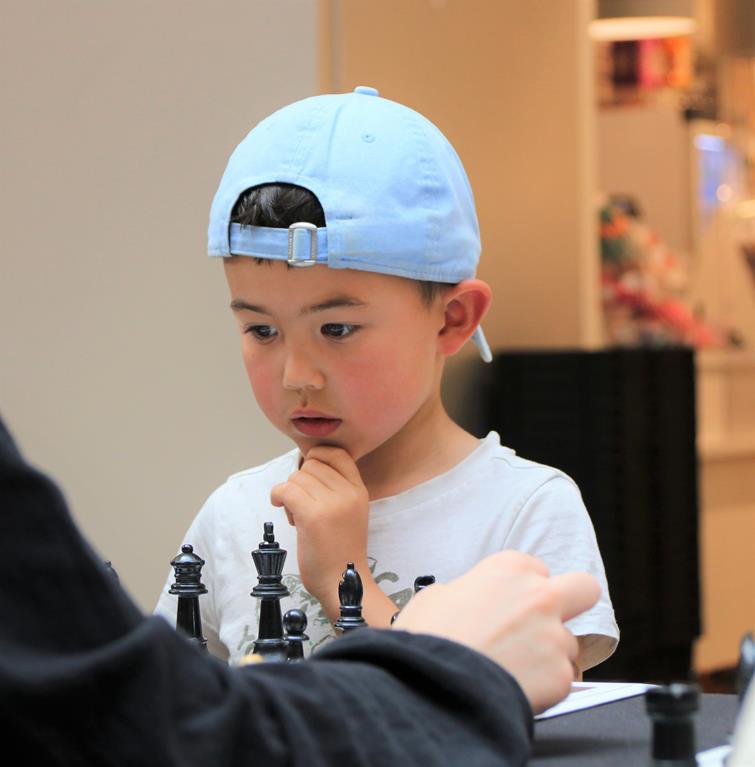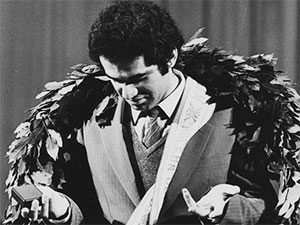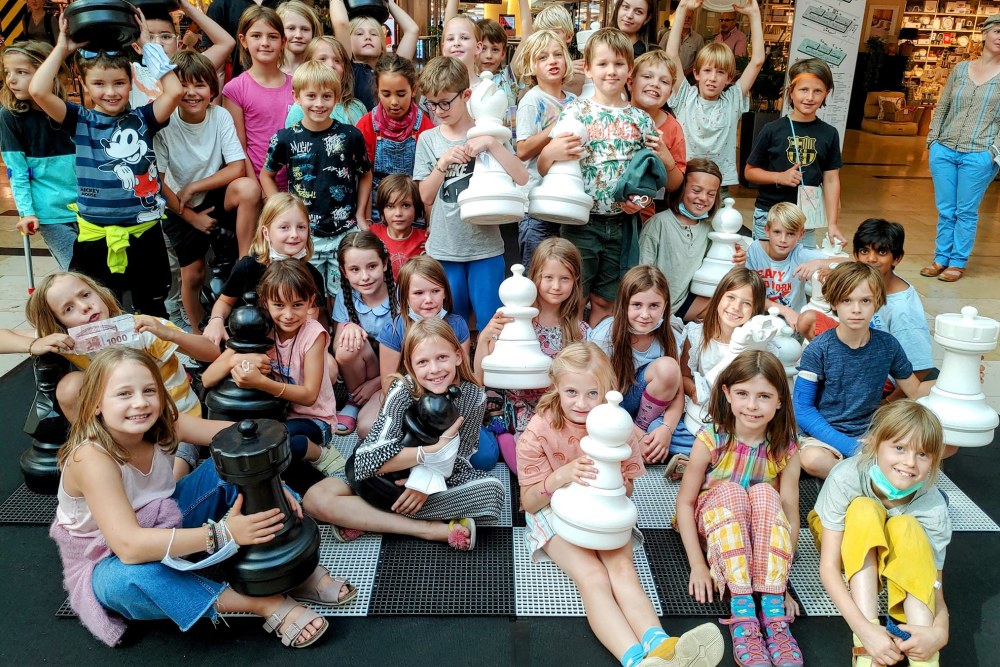Chess, Life, and Parenting
The world of children’s chess tournaments is one few parents will experience. Yet, much can be learnt from them.
I write this from the "parents’ area" of one such competition, where my two children - Anna (9) and Nathan (5) (names have been changed) - are competing in classrooms next door. The "parents’ area" is a waiting space for adults since we are prohibited from watching the games. This avoids the tut-tutting, eye-rolling, and other foul behaviour that would ensue if parents were permitted in the playing area.
In the opening game, Nathan is destroyed by a freakishly tall boy. "Better chess than boxing" was my first thought. "Is he really under 8?" was my second. I reassure Nathan that his opponent, who went on to win the tournament, was rated as high as his sister and that there was no shame in losing against this calibre of player.
Looking around the room, I see some children laughing and some crying. It reminds me of Samuel Beckett’s lines in Waiting for Godot: "the tears of the world are a constant quantity. For each one who begins to weep, somewhere else another stops."
.jpg)
Samuel Beckett - Author of Waiting for Godot and a passionate chess player | Photo: Roger Pic, Public domain, via Wikimedia Commons
One good thing about chess is that, in an age where so many children are shielded from losing, it teaches them about victory and defeat. In chess, unlike in team sports, there is no one else to blame. Unlike in poker and games of chance, luck plays little part in the outcome. There are no equivalents to let cords or wrong bounces in chess.
Learning to lose is a skill few people ever acquire. Most adults are terrible losers, blaming anyone but themselves or sinking into despair. It is, in my view, a life skill that should be taught early and chess presents opportunities for children to grasp the notion that individual decisions can have major consequences and to view losing as an opportunity to learn from mistakes and improve. It also teaches them the benefits of hard work and diligent practice.
Anna won her first game against a lower rated player, who recklessly pushed the pawns in front of his king and left him so vulnerable that Anna checkmated him without difficulty. She lived up to her nickname, the Annaconda, so called because she likes to crush her opponents like a boa.
Secretly, I hope the Annaconda will not feel too famished as, to put fire in her belly, I promised her that morning a TV in her room if she won the tournament. I estimated the chance of her winning at 100/1 since these tournaments feature a handful of higher rated players. To my consternation, the best player in her category today is 1200, which is higher than her 960 but not so strong that a win is out of reach.
I know Nathan has won his second game when I see his tearful opponent run towards his mother. Anna returns from her encounter with a thumbs up.

Chess is fun, particularly if you are winning - the photo shows a young boy during one of GM Sebastian Siebrecht's "Faszination Schach" events | Photo: Sebastian Siebrecht
I look over the game and see that her opponent, in his eagerness to check Anna’s king, failed to see that his queen could be captured by Anna’s queen, positioned on the far side of the board. He must have played too fast, as so many children do. In chess as in life, haste is the enemy of thoroughness and the cause of many a preventable error.
Nathan and Anna both lose their third round matches. The parental frustration of a double loss is tempered by the comforting thought that I will not have to buy a TV.
In round 4, I peak through a window and see Nathan playing. He has a solitary king against a vast army. No hope. His opponent pushes his pawns inexorably forward and makes a move that deprives Nathan’s king of any legal moves. It’s a stalemate and a draw. The key lesson here is "Never give up, even when all seems lost".

Chess is indeed fascinating | Photo: Sebastian Siebrecht
Next to me, also peeking, is another chess dad. "What on earth is he doing?", he mutters, shaking his head. "He doesn’t know what he’s doing." In my experience, few things are as frustrating as watching your child lose at competitive chess. You must endure the painful ordeal in silence as it slowly unfolds in front of you and your pearls of advice – take your time, develop your pieces, check your move is safe, think about your opponent’s plan – are dumped into the dustbin of their mind.
Anna wins her next match against an opponent who also blundered his queen early in the game. One of the old world champions said "chess is the constant struggle against blunder". Everyone blunders, of course, but in some areas of life the cost of a mistake is higher. If I blunder in my work as lawyer, someone loses money. If a doctor blunders, someone can lose their life. It’s all relative. When pressure mounts in my work, I find it helpful to remember that other professions are far more stressful than mine. I struggle to adopt that sensible perspective when I watch my children play chess.
Nathan wins his next match in double quick time and rushes off to the playground to play football. When I finally ask him about the game, he says he checkmated his opponent but cannot remember the specifics, save that his opponent spoke Russian. Chess is to Russia what football is to Brazil. It is part of their national identity and Nathan, even though he is only 5, knows this. I sometimes call him "my little Kasparov" after the former Soviet world champion Garry Kasparov and I have told him that, in Russia, there are chess sets everywhere. I have never been there, mind you, but in my imagination it is true.

Garry Kasparov, becoming World Champion in 1985
After the final match, Nathan walks into the parents’ room crying. "I lost. If I had won, I would have got a plaque". Ah, what could have been! I remind him that it is only his second tournament, invent a story about Magnus Carlsen, the current world champion, losing all his matches in his first tournaments, and quote him the words of a young chess prodigy called Tani Adewumi who said: "I never lose. I learn."

Tani Adewumi after making his second IM norm | Photo: Tani’s Twitter account (second norm on the left)
These rudimentary techniques do not appear to work, and he continues to cry until his sister appears, holding a plaque. She finished the tournament with 4 wins out of 6. "Next time, I’ll win that TV", she says. We then set off for a well-deserved ice cream, talking of chess, regrets, and hopes for the future. "Can we do another tournament next week?", asks Nathan, now smiling from ear to ear.
The chess tournament, with its wealth of emotions and experiences, is an excellent training ground for the challenges of life for the children, and of parenthood for the adults.
Links
Promoting fair play among child chess players


















.jpg)









